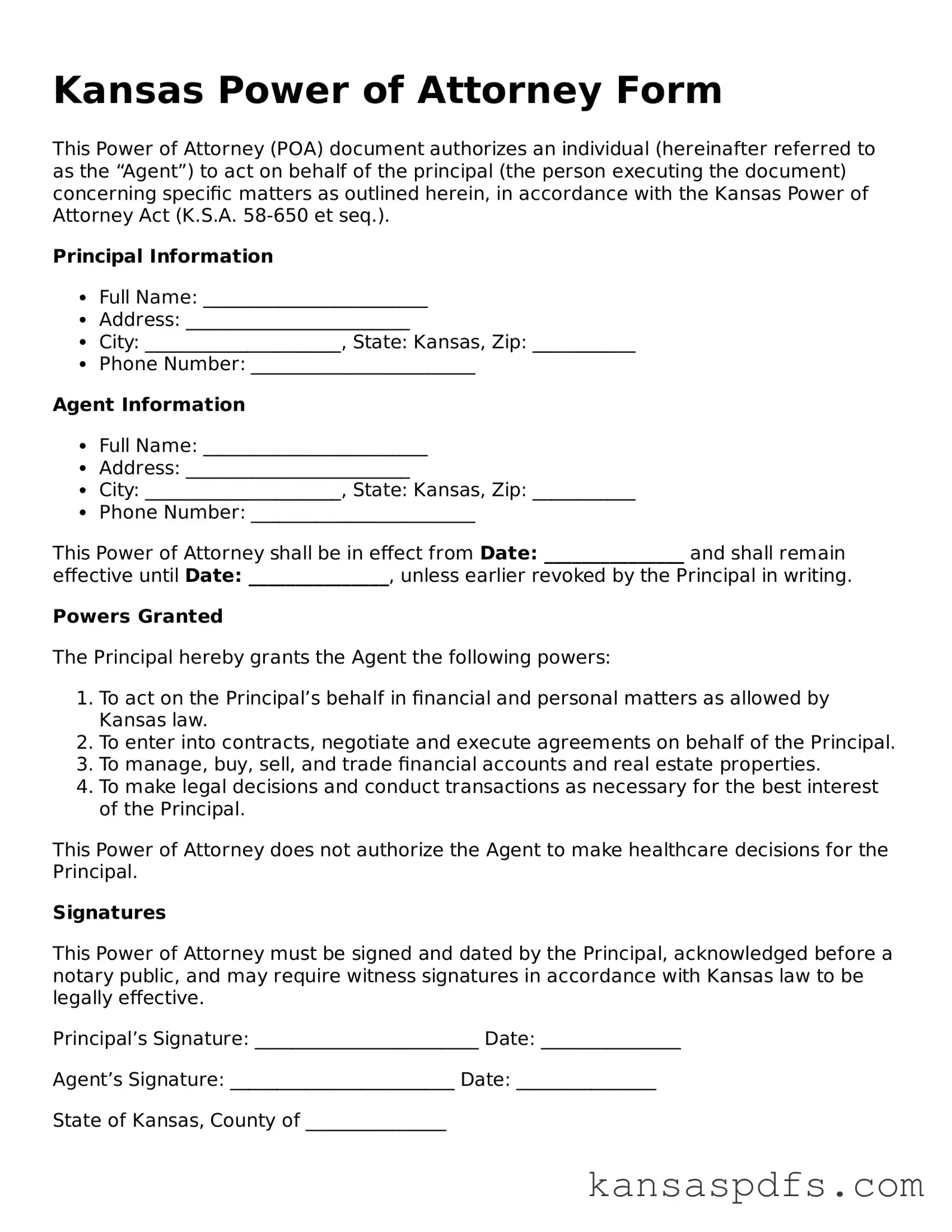Blank Kansas Power of Attorney Document
A Power of Attorney form in Kansas is a legal document that allows one person, known as the principal, to delegate their decision-making powers to another, known as the agent. This powerful tool can cover a wide range of duties, from financial decisions to medical directives, ensuring someone can act on your behalf if you are unable to do so yourself. For those looking to secure their affairs or safeguard their future, click the button below to fill out the Kansas Power of Attorney form.
Get My Form Now

Blank Kansas Power of Attorney Document
Get My Form Now

Get My Form Now
or
Free PDF
Finish this form without wasting time
Finish your Power of Attorney online with quick edits and instant download.